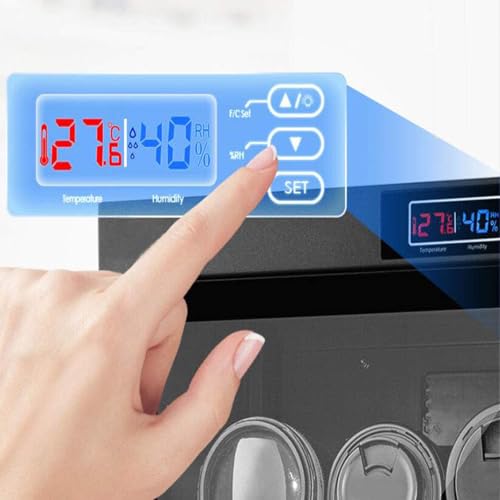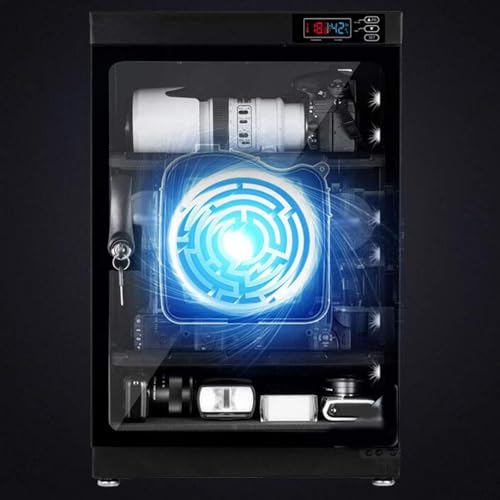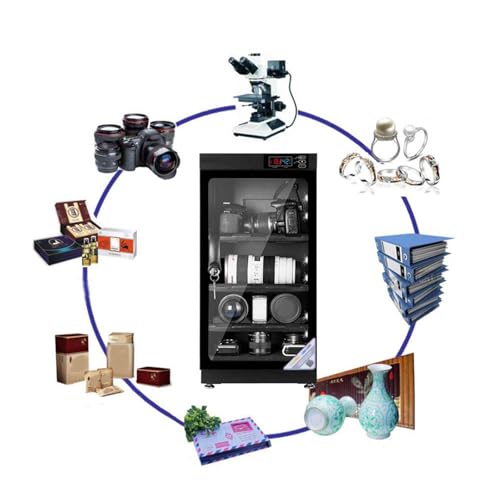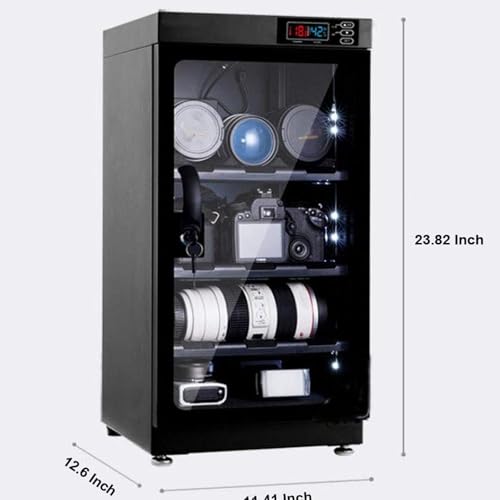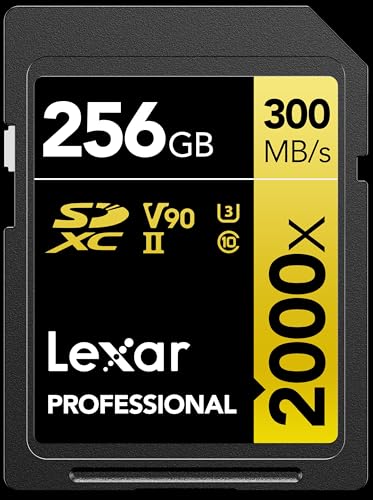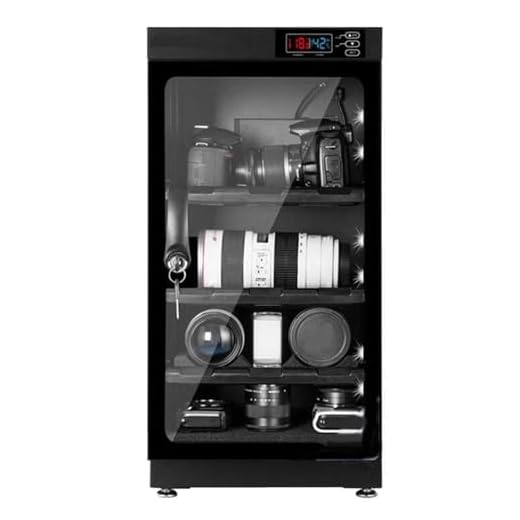



As a photography enthusiast, I know how important it is to properly store and protect my digital camera. Whether you’re a professional photographer or a casual shooter, taking care of your camera is essential to ensure its longevity and performance. Here are some tips on the best way to store your digital camera:
1. Use a dedicated camera bag or case: Invest in a high-quality camera bag or case that is specifically designed to protect your camera from dust, moisture, and accidental bumps. Choose a bag with padded compartments to securely hold your camera body, lenses, and other accessories.
2. Keep your camera in a dry and cool environment: Store your camera in a dry place away from direct sunlight and extreme temperatures. Avoid storing your camera in humid or hot conditions, as moisture and heat can damage the internal components of the camera.
Best Way to Store Your Digital Camera
When it comes to keeping my digital camera safe and secure, I have found that the best way to store it is in a dedicated camera bag. I always make sure to choose a bag that is specifically designed for cameras, with padded compartments to protect my camera and lenses from bumps and scratches.
Additionally, I like to store my camera in a cool, dry place to prevent any damage from moisture or extreme temperatures. I also make it a habit to remove the memory card and battery when storing my camera for an extended period to avoid any potential issues with corrosion or battery leakage.
- Use a dedicated camera bag with padded compartments
- Store in a cool, dry place
- Remove memory card and battery for long-term storage
Tips for Properly Storing Your Digital Camera
When it comes to preserving the longevity and functionality of your digital camera, proper storage is key. As a photography enthusiast, I have gathered some tips that have helped me maintain the quality of my camera over the years.
- Protective Case: Invest in a durable and padded camera case to shield your device from dust, scratches, and accidental impact. Make sure the case is well-padded to provide adequate protection.
- Remove Batteries: Before storing your camera for an extended period, remove the batteries to prevent corrosion and potential damage. Store the batteries separately in a cool, dry place.
- Clean and Dry: Before storing your camera, ensure that it is clean and dry. Use a soft brush or microfiber cloth to remove any dust or debris, and avoid exposing it to moisture.
- Storage Environment: Store your camera in a cool, dry place away from direct sunlight and extreme temperatures. Avoid storing it in areas prone to humidity or temperature fluctuations.
- Lens Cap and Strap: Always use the lens cap to protect the lens from dirt and scratches. Additionally, attach the camera strap to prevent accidental drops and ensure easy access when needed.
Choosing the Right Camera Bag
When it comes to storing your digital camera, choosing the right camera bag is essential for protecting your equipment and keeping it organized. As a photography enthusiast, I have learned the importance of selecting a bag that meets my needs and provides adequate protection for my camera and accessories.
One key factor to consider when choosing a camera bag is the size and type of your camera. Make sure to measure your camera and lenses to ensure they will fit comfortably in the bag. Look for a bag that offers adjustable compartments or dividers so you can customize the interior to accommodate your specific gear.
- Material: Opt for a camera bag made of durable and water-resistant materials to protect your equipment from damage. Look for bags with padded interiors to cushion your camera and lenses from bumps and drops.
- Comfort: Consider the carrying options of the bag, such as shoulder straps or backpack-style designs. Choose a bag that is comfortable to wear for extended periods, especially if you plan on carrying your camera gear for long photo shoots or trips.
- Additional Features: Look for camera bags that offer extra pockets and compartments for storing memory cards, batteries, and other accessories. Some bags also come with built-in rain covers or tripod straps for added convenience.
Protecting Your Camera from Dust and Moisture
One of the key ways to ensure the longevity of your digital camera is to protect it from dust and moisture. Dust particles can easily find their way into the camera’s lens and sensor, affecting image quality and potentially causing damage. Moisture, on the other hand, can lead to corrosion and electrical issues, rendering your camera unusable.
When storing your camera, it is important to keep it in a dry and clean environment. Consider using a camera bag or case that provides some level of protection against dust and moisture. Additionally, avoid storing your camera in areas with high humidity or extreme temperature changes, as these conditions can accelerate the growth of mold and fungus.
- Store your camera in a cool, dry place away from direct sunlight.
- Use silica gel packets or a dehumidifier in the storage area to absorb excess moisture.
- Regularly clean your camera’s exterior and lens to remove any dust or dirt buildup.
- Invest in a professional camera cleaning kit to maintain your camera’s internal components.
Storing Your Camera in a Cool and Dry Place
When it comes to storing your digital camera, one of the best practices is to keep it in a cool and dry place. Moisture and extreme temperatures can damage the delicate electronic components of your camera, leading to malfunctions and reduced lifespan.
Personally, I make sure to store my camera in a room that is well-ventilated and away from direct sunlight. I also avoid storing it in places like the bathroom or kitchen where humidity levels can be high. Instead, I opt for a dedicated camera bag or case that provides cushioning and protection while keeping the camera safe from environmental factors.
- Choose a storage location with consistent temperature and humidity levels
- Keep your camera away from sources of heat and moisture
- Use a camera bag or case to protect your camera when not in use
- Avoid storing your camera in direct sunlight or extreme cold
Using Desiccants to Prevent Moisture Damage
When it comes to storing your digital camera, one of the most important factors to consider is moisture. Excessive moisture can lead to damage to the sensitive electronics and lenses of your camera, so it’s essential to take steps to prevent this.
One effective way to protect your camera from moisture damage is by using desiccants. Desiccants are substances that absorb moisture from the air, helping to keep your camera dry and free from humidity. Silica gel packets are a common type of desiccant that can be placed in your camera bag or storage container to absorb excess moisture.
- Place silica gel packets in your camera bag or storage container to absorb moisture.
- Store your camera in a dry, cool place to prevent condensation.
- Replace silica gel packets regularly to ensure they are effective.
Avoiding Exposure to Extreme Temperatures
When it comes to storing your digital camera, one of the most important factors to consider is the temperature. Extreme temperatures can have a detrimental effect on the performance and longevity of your camera, so it’s crucial to take precautions to avoid exposure to such conditions.
High temperatures can cause the internal components of your camera to overheat, leading to malfunctions and potential damage. On the other hand, extremely cold temperatures can cause the battery to drain quickly and may also affect the LCD screen. To prevent these issues, always store your camera in a cool, dry place away from direct sunlight and heat sources.
- Store your camera in a padded camera bag or case to provide some insulation against temperature fluctuations.
- Avoid leaving your camera in a car on a hot day or in freezing temperatures, as this can quickly damage the sensitive electronics.
- If you need to travel with your camera in extreme weather conditions, consider using a temperature-controlled camera bag or a protective camera wrap.
Cleaning and Maintaining Your Camera Before Storage
Before storing your digital camera, it is important to properly clean and maintain it to ensure it stays in good condition for future use. Here are some tips on how to clean and maintain your camera before storing it:
- Clean the exterior: Use a soft, lint-free cloth to gently wipe down the exterior of your camera to remove any dust, dirt, or fingerprints. Avoid using harsh chemicals or abrasive materials that could damage the camera’s finish.
- Clean the lens: Use a lens cleaning cloth or brush to carefully clean the lens of your camera. Be gentle and avoid using excessive force to prevent scratching the lens. If there are stubborn smudges or dirt, you can use a small amount of lens cleaning solution applied to the cloth.
Removing Batteries and Memory Cards Before Long-Term Storage
When preparing to store your digital camera for an extended period of time, it is essential to properly remove the batteries and memory cards to maintain the device’s longevity. As a photographer, I have learned the importance of safeguarding my equipment, and this includes taking necessary precautions before storing it away.
Firstly, before placing your camera in storage, make sure to remove the batteries from the device. This step is crucial as leaving batteries inside the camera for an extended period can lead to corrosion and potential damage. I always ensure to fully charge and then remove the batteries to prevent any leakage that could harm the camera’s internal components.
- Remember to remove the memory card as well, as it contains valuable data that you may want to access later.
- Store the batteries and memory card separately in a cool, dry place to prevent any moisture damage.
Regularly Checking Your Camera for Signs of Wear and Tear
One of the most important aspects of maintaining a digital camera is regularly inspecting it for any signs of damage or wear. As a photographer, it is crucial to ensure that your camera is in optimal condition to capture high-quality images.
Start by checking the exterior of your camera for any scratches, dents, or cracks. These physical damages can affect the functionality of your camera and may lead to further issues if not addressed promptly. Inspect the buttons, dials, and lens mount to ensure they are working smoothly and securely.
- Examine the LCD screen for any dead pixels or scratches that may impact your ability to view images clearly.
- Check the battery compartment and memory card slot for any debris or corrosion that could interfere with the camera’s performance.
- Regularly clean the camera’s sensor and lens to prevent dust and dirt from affecting the quality of your photos.
Considerations for Storing Multiple Cameras or Lenses
When it comes to storing multiple cameras or lenses, there are a few additional considerations to keep in mind. Here are some tips to help you safely store your photography gear:
- Separate Storage: It’s important to store each camera and lens separately to prevent them from scratching or damaging each other. Consider using individual padded compartments or cases for each piece of equipment.
- Labeling: To stay organized, label each storage container or compartment with the name of the camera or lens it contains. This will make it easier to quickly locate the gear you need.
- Climate Control: If you live in a humid or extreme temperature environment, consider storing your cameras and lenses in a climate-controlled space to prevent damage from moisture or temperature fluctuations.
- Regular Maintenance: Make sure to regularly inspect and clean your cameras and lenses before storing them. This will help prevent dust, dirt, or other debris from causing damage over time.
By following these considerations for storing multiple cameras or lenses, you can ensure that your photography gear remains in optimal condition and ready for use whenever you need it.
Best way to store digital camera
Features
| Part Number | ACPRO1400 |
| Model | ACPRO1400 |
| Warranty | CHINA |
| Color | Black |
| Is Adult Product | |
| Release Date | 2018-01-01T00:00:01Z |
| Size | Large |
| Language | English |
Features
| Part Number | T154017FBA |
| Model | Camera Dry Cabinet |
| Color | Black |
| Price history for Digital Control Camera Lens Storage | |
|---|---|
|
Latest updates:
|
|
Features
| Part Number | CN190415LD6-BK |
| Color | Black |
| Size | Large |
Features
| Part Number | jp_1223473 |
| Model | TB-02-BLK-EU |
| Color | Black |
| Is Adult Product | |
| Size | Black |
Features
| Part Number | ASK-40-100G |
| Size | 100G |
Features
| Part Number | VCV100-0040-BLK |
| Model | VCV100-0040-BLK |
| Warranty | 1 Year Limited Warranty |
| Color | Black |
| Release Date | 2022-01-01T00:00:01Z |
| Size | V100 |
Features
| Model | 5671 |
| Color | Black |
Q&A:
What is the best way to store a digital camera?
The best way to store a digital camera is in a cool, dry place away from direct sunlight. It is also recommended to store the camera in a protective case or bag to prevent damage from dust or accidental drops.
Should I remove the batteries from my digital camera when storing it?
It is generally a good idea to remove the batteries from your digital camera when storing it for an extended period of time. This can help prevent corrosion and damage to the camera’s battery compartment.
How often should I clean my digital camera before storing it?
It is recommended to clean your digital camera before storing it to remove any dust or debris that may have accumulated. You can use a soft, dry cloth or a camera cleaning kit to gently clean the exterior of the camera and the lens.








